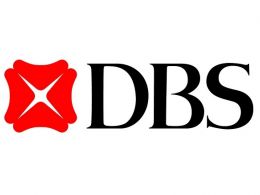
Global think tank suggests blockchain in public finance can help reduce fraud
Modernizing public finance management through blockchain could help governments identify potential corruption and waste by providing additional transparency and traceability. The Official Monetary and Financial Institutions Forum, or OMFIF, an independent global think tank for central banking and economic policy, has released a report suggesting that blockchain technology in a public finance management system could provide information essential to “formulate and design fiscal policy.”According to a Tuesday report, the OMFIF said modernizing public finance management through blockchain....
Related News
Banks are exploring blockchain or distributed ledger technology as a way to prevent fraud risk in the $4 trillion trade financing industry. Standard Chartered Plc, having lost nearly $200 million in fraud at Qingdao port two years ago, has partnered with DBS Group Holdings Ltd. to establish an electronic invoice ledger using a blockchain. HSBC Holdings Plc and America Corp. are also looking at blockchain for trade finance in addition to other applications. Trade financing, a centuries-old mainstay of banking, could become the starting point for blockchain adoption since it can eliminate....
Although DBS and Standard Chartered have tried their ledger of invoices at the end of 2015, not too many details have been revealed regarding their progress ever since. Even more financial institutions are turning towards the blockchain these days, as the technology will help financial players reduce overhead costs and offer better security standards. DBS and Standard Chartered have partnered up to venture into the world of blockchain technology in an attempt to reduce fraud rates. DBS and Standard Chartered Take On The Blockchain. It is positive to see financial entities actively explore....
A new essay from the CEO of the International Federation of Accountants, an organization that boasts more than 2.5 million accountants and 179 member-organizations among its ranks, suggests that there is a growing belief in the industry that bitcoin technology could revolutionize fiscal and corporate governance. The article, penned by IFAC CEO Fayez Choudhury, posits that bitcoin presents both opportunities and challenges for accountants, and argues that accountants are uniquely placed to help determine the role that bitcoin will play in global finance. Choudhury suggests that bitcoin....
Jeff Garzik, bitcoin entrepreneur and founder of Bloq, a code-for-hire service, gave an overview of blockchain’s application to real estate at the International Blockchain Real Estate Association (IBREA) Conference in Newport Beach, Calif. A video of the conference is available on Youtube. He explained blockchain technology’s benefits to the real estate business: automated payments, fraud reduction, no bad checks, more data on properties in real time, more trust in the property information, and more auditable transactions. Garzik is also building a real estate decentralized autonomous....
With contributions from BNY Mellon and Rabobank, FinTech Network have composed a whitepaper that outlines Four Blockchain Use Cases for Banks. The paper highlights areas where distributed ledger technology could disrupt the way that financial institutions currently do business including: Fraud Protection: How blockchain offers complete transparency on all asset transfers helping to enable real-time fraud analysis and prevention. Know Your Customer: How KYC statements can be stored on the blockchain to reduce admin burdens and costs whilst outlining the concerns that still need to be....





